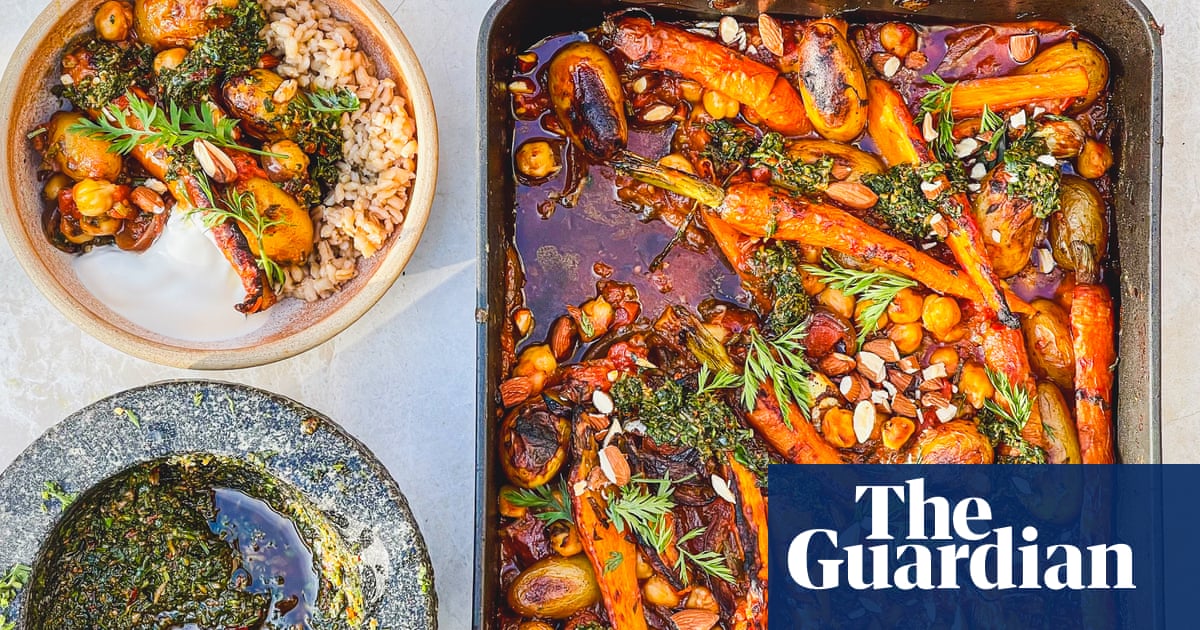Three employees of a firm that provided workers to pick grapes for champagne has gone on trial for human trafficking, in one of the biggest labour scandals to hit France’s exclusive sparkling wine industry.
The employees of the firm supplying grape pickers for the champagne harvest in 2023 were charged with human trafficking and exploiting seasonal workers, submitting vulnerable people to undignified housing conditions, and employing foreign nationals without authorisation. The firm itself was also on trial for moral responsibility in the case.
The case, being heard at the criminal court of Châlons-en-Champagne in north-east France, has become known in France as “the grape harvest of shame”.
A police investigation found that a total of 57 men and women, mostly from west African countries and many of them undocumented, were allegedly held in fetid housing. They were allegedly forced to work in conditions likened to slavery while hand-picking grapes in Champagne’s picturesque vineyards, in a region recognised as a Unesco world heritage site.
The case came to light when residents in the small village of Nesle-le-Repons called police to complain about noise and activity in a derelict house during the September 2023 grape harvest.
A labour inspectorate found what it said in a report were “disgusting” and “dilapidated” living conditions at the house.
Grape-pickers were allegedly forced to sleep on what they described as stinking inflatable mattresses in a house without proper flooring, walls or windows, amid dangerous electrical wiring and rusty bed frames. There was no adequate water supply, washing facilities or sanitation and only three blocked and unusable toilets.
The workers, from countries including Mali, Mauritania, Ivory Coast and Senegal, were allegedly given too little food – either rice or sandwiches that were rotting. They were said to be transported to vineyards crammed into the back of vans, standing up, with no seats or windows. Some told investigators they worked for 10 hours with only a 30-minute break and were threatened if they wanted to rest or drink water.
They are believed to have been hired from areas in northern Paris where refugees and undocumented people often sleep rough or in tents and were driven to the Champagne region with the promise of work.
The state prosecutor said the housing in the Champagne area included “worn and dirty sanitation facilities”, outdoor kitchen and living areas that were unprotected from the weather, and bedding strewn on the floor.
Two of the former workers told local French media that they still cried when thinking about the conditions they experienced. Maxime Cessieux, a lawyer for the workers, said the accused had “a total contempt” and disrespect for “human dignity”.
A lawyer for one of the accused employees told the Nouvel Obs he had only been involved in initial recruitment, and had had nothing to do with housing or work conditions.
The CGT trade union said there must be an end to exploitation of seasonal workers in vineyards.
In a sign that the case was being taken seriously by the industry, the Champagne Committee, which represents 16,200 winemakers, 130 cooperatives and 370 champagne houses, took part in the trial as a civil party – a first for legal proceedings concerning the living conditions of seasonal workers.
The committee is “firmly opposed to these unacceptable practices”, its director, Charles Goemaere, said in a statement in March.
A wine cooperative in the Marne was also on trial for moral responsibility in using illegal labour.
Every year, about 120,000 seasonal workers are brought into the Champagne region to handpick grapes grown across 34,000 hectares (84,000 acres) and used to make the sparkling alcoholic drink.
But the plight of seasonal workers has sometimes cast a shadow over champagne’s reputation. In 2023, four grape-pickers died, believed to have suffered sunstroke after working in scorching heat. During the 2018 champagne harvest, dozens of workers, including many from Afghanistan, were discovered housed in fetid conditions. Two members of a firm providing labour to the wine industry were found guilty of human trafficking and given prison sentences.
David Desgranges, vice-president of the Consortium Contre l’Esclavage Moderne (Committee Against Modern Slavery), told Agence France-Presse: “The public should be made aware of the extent of human trafficking in the agricultural sector, and producers should know that they may face legal action.”

 3 months ago
57
3 months ago
57

















































